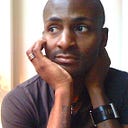Member-only story
Confessions of a Race Writer
To be a race writer is to be a fraud. It is, as Olúfémi Táíwò put it, “to be given authority regardless of what you do or do not know, or what you have or have not experienced.”
It is to inherit the struggles of millions of people, not because you were elected to do so, not because you struggle in identical ways, but because you share a bond that is literally skin-deep.
And so, to be a race writer is to be tempted to perform “blackness.” To mine your life only for the moments in which you were mistreated or overlooked or wronged. To edit your humanity for fear of tarnishing your victimhood.
It is to risk playing this part so convincingly that you begin to believe it.
And yet, by any reasonable definition, to be a race writer is to be privileged. It is to have escaped the impoverished schools that leave 85% of their Black eighth-graders functionally illiterate. It is to not be among the 31% of Black households that don’t have reliable access to the internet.
It is to have the ability and the opportunity to say something valuable about these people. To be one of the few people, of any colour, with the power to make their voice heard.
To be a race writer is to be willing to ask yourself uncomfortable questions.
It is to wonder why there was so much more media coverage of Ma’Khia Bryant’s shooting than 8-year-old Secoreia Turner’s. It is to notice that nobody says 11-month-old Dior Harris’ name at BLM rallies. It is to wonder why Black lives only seem to matter when White police officers pull the trigger.
To be a race writer is to know that 11% of Americans believe that around 10,000 unarmed Black men were killed by police in 2019 when the actual figure was 13. It is to notice how eager the media is to apply a racial lens to a story. It is to wonder whether police reform would come more quickly if we stopped framing it as a “Black” problem. It is to wonder why so much effort is invested in keeping Black people angry and afraid.
To be a race writer is to know the stories of Mae Jennison and Michelle Howard and Ursula Burns and Millie Bailey, and wonder why nobody says their names either. Not because…

